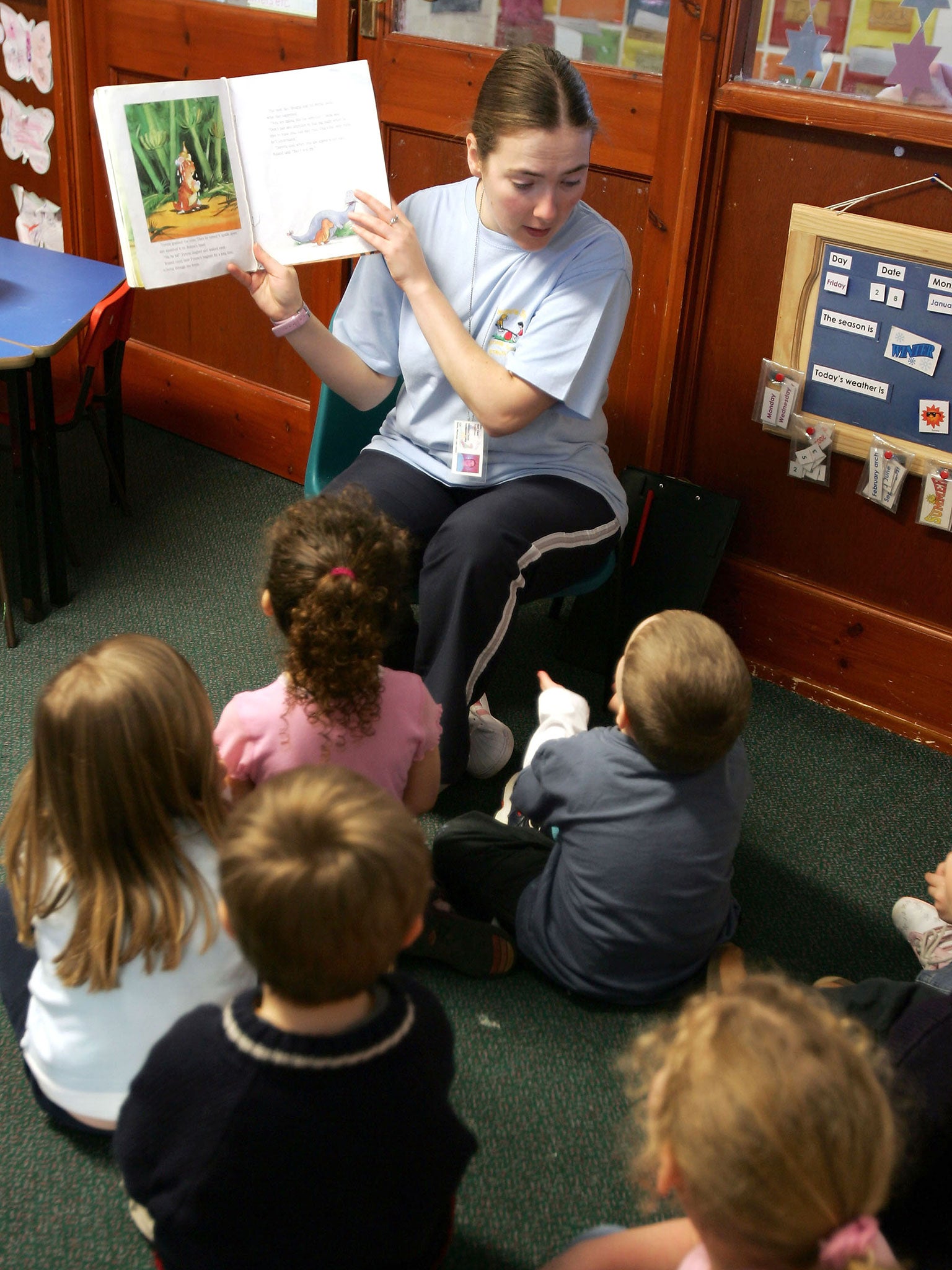Exclusive: Children with nursery education get better GCSEs
Boost from pre-school education is equivalent to gaining seven B grades at GCSE rather than seven C grades

Your support helps us to tell the story
From reproductive rights to climate change to Big Tech, The Independent is on the ground when the story is developing. Whether it's investigating the financials of Elon Musk's pro-Trump PAC or producing our latest documentary, 'The A Word', which shines a light on the American women fighting for reproductive rights, we know how important it is to parse out the facts from the messaging.
At such a critical moment in US history, we need reporters on the ground. Your donation allows us to keep sending journalists to speak to both sides of the story.
The Independent is trusted by Americans across the entire political spectrum. And unlike many other quality news outlets, we choose not to lock Americans out of our reporting and analysis with paywalls. We believe quality journalism should be available to everyone, paid for by those who can afford it.
Your support makes all the difference.Children who attend nursery or pre-school go on to achieve significantly better GCSE results than those who are kept at home before school age, a major study has found.
The boost from pre-school education is equivalent to gaining seven B grades at GCSE rather than seven C grades. Children who go to pre-school also develop better literacy, behaviour and concentration as teenagers, and can earn an extra £27,000 over their working lives, the research found.
“There is an enduring effect of pre-school. Attendance, quality and duration at pre-school all show long-term effects on students’ academic outcomes,” concluded a major longitudinal study, The Effective Pre-school, Primary and Secondary Education (EPPSE) project, which has tracked more than 3,000 youngsters since 1997.
The findings, revealed exclusively by The Independent, show that the younger pupils were when they started pre-school – and the longer they attended – the stronger the boost to GCSE results.
However, it did not matter whether children attended pre-school full time or part time as the eventual gains were the same. The quality of pre-school also predicted the children’s GCSE results. Those who had attended high quality facilities were more likely to achieve 5 A*-C including English and maths, and were also likely to show better behaviour and lower levels of hyperactivity.
The study also showed a particularly strong effect on boys’ maths results. Boys who attend a high quality pre-school obtained significantly higher grades in GCSE maths than either those who attended lower quality pre-school or none at all.
The Effective Pre-school and Primary Education project (EPPE) was the first major longitudinal study in Europe to investigate the impact of pre-school provision on a national sample.
It has already reported the positive effect of attending pre-school on pupils aged seven, 11 and 14. Today’s findings confirm that the positive effect continued as far as GCSE. Sam Gyimah, the childcare minister, told The Independent that the Government’s commitment to early years education was helping to “level the playing field” between rich and poor.
He said: “The research shows that our current policy position is supported by the evidence rather than being an ideological crusade. Today we have universal provision of pre-school for three and four year olds and we are one of only 10 OECD countries where over 90 per cent of three and four year olds go to pre-school.
“We’ve also now got 40 per cent of two year olds entitled to 15 hours of free childcare. We have to do more of all of this if we really want to improve social mobility. Improving social mobility means you can’t have children behind at school when they arrive for the first time.”
Neil Leitch, chief executive, Pre-school Learning Alliance, welcomed the findings but said: “At a time when childcare policy is largely focused on helping parents return to work, this study is a timely reminder of the significant impact that early years provision has on children’s long-term learning and development.”
Join our commenting forum
Join thought-provoking conversations, follow other Independent readers and see their replies
Comments